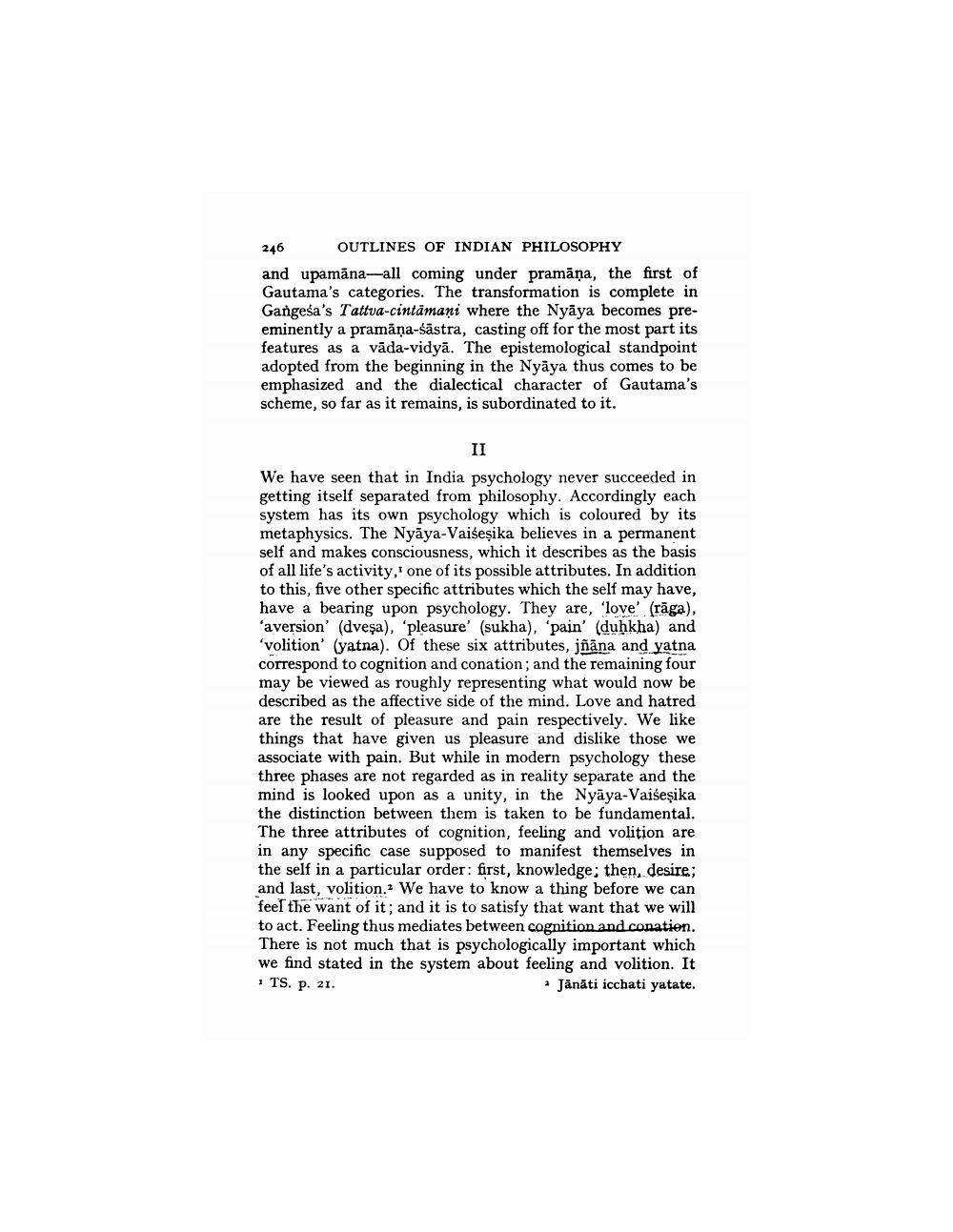________________
246 OUTLINES OF INDIAN PHILOSOPHY and upamāna--all coming under pramāņa, the first of Gautama's categories. The transformation is complete in Gangesa's Tattva-cintamani where the Nyāya becomes preeminently a pramāņa-śāstra, casting off for the most part its features as a vāda-vidyā. The epistemological standpoint adopted from the beginning in the Nyaya thus comes to be emphasized and the dialectical character of Gautama's scheme, so far as it remains, is subordinated to it.
II
We have seen that in India psychology never succeeded in getting itself separated from philosophy. Accordingly each system has its own psychology which is coloured by its metaphysics. The Nyāya-Vaiseșika believes in a permanent self and makes consciousness, which it describes as the basis of all life's activity, one of its possible attributes. In addition to this, five other specific attributes which the self may have, have a bearing upon psychology. They are, 'love' (rāga), 'aversion' (dveşa), pleasure' (sukha), 'pain' (duhkha) and 'volition' (yatna). Of these six attributes, jñana and vatna correspond to cognition and conation; and the remaining four may be viewed as roughly representing what would now be described as the affective side of the mind. Love and hatred are the result of pleasure and pain respectively. We like things that have given us pleasure and dislike those we associate with pain. But while in modern psychology these three phases are not regarded as in reality separate and the mind is looked upon as a unity, in the Nyāya-Vaisesika the distinction between them is taken to be fundamental. The three attributes of cognition, feeling and volition are in any specific case supposed to manifest themselves in the self in a particular order: first, knowledge; then, desire; and last, volition. We have to know a thing before we can feel the want of it, and it is to satisfy that want that we will to act. Feeling thus mediates between cognition and conation. There is not much that is psychologically important which we find stated in the system about feeling and volition. It · TS. p. 21.
* Jänāti icchati yatate.




